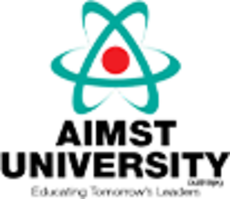AIMST diploma programme is an industry-based course with adequate theory and practical exposure in the area of electrical and electronics engineering. Students are assessed by course work and final examination. Coursework includes laboratory reports, assignments, mini projects and mid-semester examination.
Industrial training and project work is compulsory and forms part of this course. Career opportunity includes technicians in power stations, semi-conductor fabrication industry, telecommunication systems, embedded systems and etc.
Programme Outcome
- Apply knowledge of mathematics, science and engineering fundamentals to well-defined engineering procedures and practices (Cognitive).
- Analyze well-defined engineering problems in their discipline with respect to operation and maintenance, including troubleshooting (Cognitive)
- Conduct investigations and assist in the design of solutions for engineering systems (Psychomotor).
- Apply appropriate techniques, resources, and engineering tools to well-defined engineering activities, with an awareness of the limitations (Psychomotor).
- Demonstrate an awareness of and consideration for societal, health, safety, legal and cultural issues and their consequent responsibilities (Affective).
- An ability to communicate effectively in the written and oral form with the engineering community and society at large (Psychomotor).
- Function effectively in a diverse technical and non-technical team (Affective).
- Demonstrate an understanding of professional ethics, responsibilities and norms of engineering practices (Affective).
- Demonstrate an awareness of management, leaderships, business practices and entrepreneurship skills (Psychomotor).
- Demonstrate an understanding of the impact of engineering practices, taking into account the need for sustainable development (Affective).
- Recognize the need for professional development and to engage in independent and lifelong learning (Affective).



